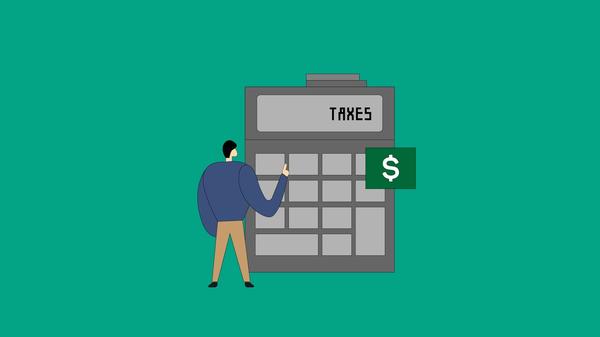Growing your wealth is a bit more complicated than sticking all your money in a registered account and letting it generate compound interest (though, not a bad idea!). This strategy is growth-oriented, and with a bit more effort on the table, your money works for you more effectively.
What kind of effort? By investing in income-generating assets. These are investments that will generate a steady stream of income - no different than getting a regular paycheck from your 9-to-5 - allowing you to build up your savings and ultimately reach your financial goals.
Not all income generating assets fall within a passive investing strategy. For example, renting your property involves degrees of tenant and property management for you to generate income from. But what are some types of income-generating assets that fall into a passive investing strategy?
The five most popular passive investing income generating assets are:
- GIC’s and High Interest Savings Accounts
- Dividend Income
- ETFs
- ETF Pruning
- REITs
Let’s look at each of these:
GIC’s and High Interest Savings Accounts (HISA’s)
This is the safest form of income-producing asset.
GICs (Guaranteed Investment Certificates) and High Interest Savings Accounts are two of the safest forms of investing. GICs are issued by banks and other financial institutions, and offer a guaranteed rate of return over a fixed period. High interest savings accounts also offer a guaranteed rate of return, but they can often be more liquid than GICs as they allow you access to your money more quickly. Both GICs and high interest accounts are a low risk investment option and usually have low fees associated with them.
With interest rates rising, the return on your money invested in high-interest savings accounts is improving. A number of banks offer very favorable interest rates, if you do quality research. Interest is usually calculated on the daily closing balance and paid monthly.
Many HISA’s are government insured, as well, which for your Canadian dollar investment is protected up to $100,000, depending on the institution.
Bonds
Bonds are debt instruments that allow investors to loan money to governments or companies in exchange for regular payments over time plus the return of the principal at maturity. Bonds are considered relatively safe, like GICs, but not for the same reason. Bonds are backed by governments or corporations which have the ability to pay back their debts. Of course, like any investment, there is still some risk involved. Bonds can lose value if interest rates rise (which has made them less attractive in recent years) or if the issuer fails to make its payments on time.
Dividend Income
Have you ever received a work bonus at the end of the year? That feeling of getting a bump to your overalloveral income is a pretty sweet feeling. Then you probably will like dividend income.
Dividend income comes from owning shares in a company that pays dividends - essentially giving shareholders a portion of their profits every quarter or year depending on how often they pay out dividends. Dividends can be reinvested back into more shares or simply taken as cash payments.
This type of income-generating asset requires patience as dividend yields tend to be lower than most other investments but they do provide consistent cash flow which makes them attractive for those looking for reliable returns over time without taking on too much risk.
Some retirees enjoy dividend income strategies as it allows them to produce income at intervals similar to receiving a paycheque. For similar reasons, some investors use dividend strategies as a means to be financially independent and retire early by using their dividend income as ‘paycheques’ to themselves.
ETF's
ETFs are collections of stocks, bonds, commodities, or other investments bundled together into one fund that is traded on an exchange like stocks. ETFs give investors exposure to broad groups of investments without having to purchase individual stocks or bonds themselves—a great way for novice investors to gain diversification without needing much capital. ETFs just like their underlying assets can distribute income (bond distribution, stock dividend, etc.).
ETFs come in all shapes and sizes so it’s important for investors to do their research before investing in one; it’s also important to check out management fees as these can eat into returns over time.
ETF Pruning
Ok, so you like ETFs. And maybe you enjoy dividends - the high of getting a little cash influx at regular intervals. But it’s important to know that each time a company issues a dividend, their stock price actually takes a small hit.
Essentially, if you had just bought and held that stock, you would have equivalent to the dividend and the after-dividend price.
Well, why not just do this yourself?
This is called asset pruning. Instead of getting a dividend, you just follow as the share appreciates and sell off a little bit of the stock at a time.
ETF pruning involves selling off portions of an ETF when it has become overly concentrated in one sector or asset class - in other words, when certain positions within the ETF have become too large relative to others - and buying those same assets separately from each other instead. Pruning an ETF can help manage risk while still providing exposure to a wide variety of assets; however, it does require more active management on behalf of the investor which may not work well for everyone’s investment strategy.
Keep in mind that whatever you sell you will be taxed for capital gains, which is around 50% of your marginal rate.
REITS
Now if you like dividends and you also like real estate, then REIT’s are great for you.
Real Estate Investment Trusts, or REITs for short, are companies that own and operate or finance real estate that generates income, including apartments complexes, shopping centers, storage facilities, hotels, and more. As REIT shareholders, investors get the experience of being involved in real estate without the complications that come with owning, operating, or directly financing properties.
REITs generally produce higher returns than traditional investments due largely in part because many REITs offer monthly distributions (like dividends). This makes them a strong income generating asset. As with any investment vehicle though there can be risks associated with REIT investing so it's important for investors doing their research before making any commitments here as well!
Conclusion
When it comes to growing wealth through passive investing there are many different approaches you can take. Different types of income generating assets will suit different needs and goals depending on an individual investor's risk tolerance level and desired results.
Like the idea of steady drips of income? Dividend assets are great! Would you prefer to hold onto those types of assets but watch them grow? ETFs are great! Want safety, security, and expected returns? GIC’s and HISA’s are great!
Ultimately, though no matter what type you choose, remember income generating assets are not special. Like any investment there is risk and reward involved. Be sure to do your due diligence first so that you're comfortable with whatever decision you make.
Give five more minutes of your time to get more education on dividends, read one of these great articles:
VGRO vs. XGRO. Which ETF is Best?
What Are REITs and How to Choose Them?


